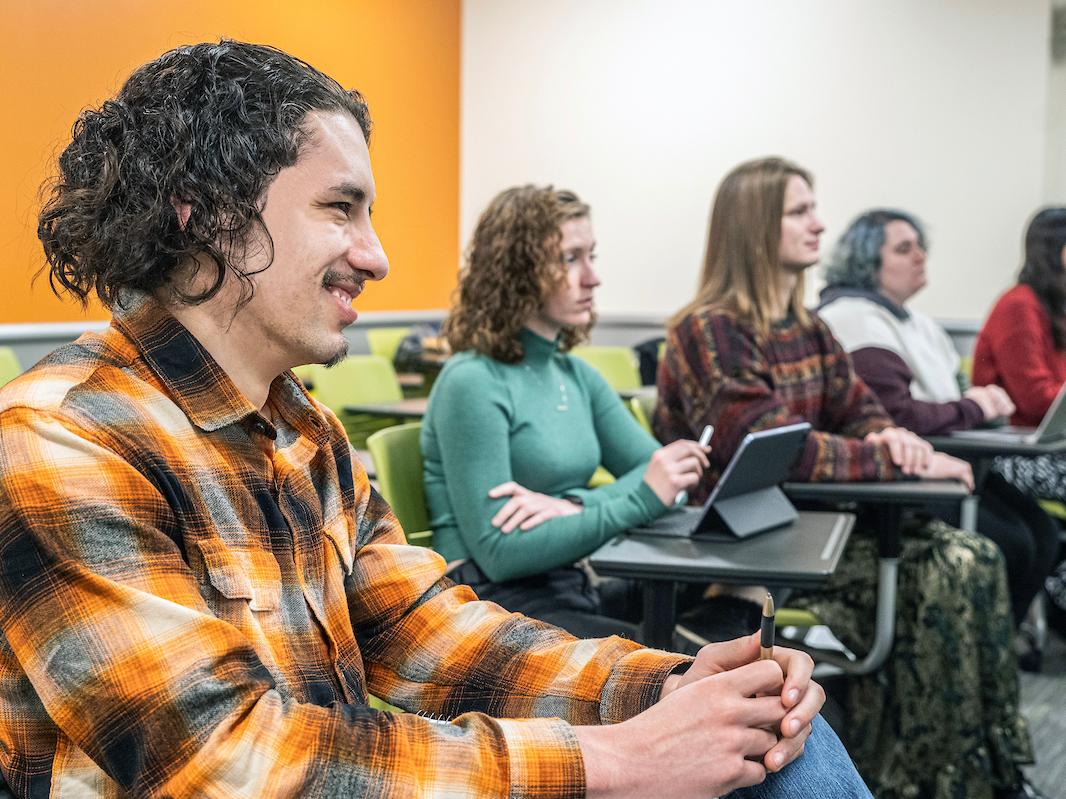IDIS 10605
Department of Interdisciplinary Studies


Experience a 21st-century liberal arts curriculum.
Through the College of Liberal Arts core requirements, you will achieve the breadth of knowledge and range of skills that employers value. Our college-wide curriculum includes a team-taught interdisciplinary course required of all majors in our college. Housed in the Department of Interdisciplinary Studies, IDIS 10605 Introduction to the Liberal Arts is a variable topics-based course designed to bridge the disciplinary specialties of the faculty who team-teach the course and enable you to integrate knowledge across fields of study in exciting and powerful ways.
IDIS 10605 Introduction to Liberal Arts
Our Spring 2026 topics.
IDIS 10605 Section 01 and Section 02
Taught by Sarah LeBlanc and Kate White
Course description
This course will examine the rhetoric surrounding book bans. Students will read banned books from four categories. You will explore how literature has shaped their identity and understanding of the world. Students will examine how values, beliefs, and attitudes communicated within their families and cultural systems influence how they perceive the books and speak about topics not discussed within the family, mirror, or divert from the issues found in the banned books.
IDIS 10605 Section 03 and Section 04
Taught by Lee Roberts and Debrah Huffman
Course description
This course brings together two disciplines, English and German, to explore propaganda as a powerful rhetorical device in history and today. Beginning with notable examples of wartime propaganda from around the First World War and their development in relation to the Second World War, students will see how propaganda has been used historically in various countries and how it is still used for conflicts such as in Ukraine and the Middle East and by extremist organizations in the United States. Students will also learn how misinformation and conspiracy theories work with propaganda to promote social and political agendas in social media and new outlets.
Students will learn how propaganda can take a subtler approach in various organizations' websites and new agencies that can train the unwary mind to think in specific ways. Rhetorical analysis becomes the lever to open up what makes propaganda work and, ultimately, how to resist it. By learning how to identify propaganda and misinformation, students will develop critical reading skills applicable to various disciplines that focus on reading and writing, including non-propagandist tests.
IDIS 10605 Section 05 and Section 06
Taught by Kathryn Angelica and Stevie Scheurich
Course description
Popular stories telling the birth of the United States have celebrated the country’s rebellious roots as a key part of its identity. But not all social movements protesting power have been treated the same throughout U.S. history. Through readings and course discussion, students will be introduced to an array of protest movements spanning the founding of the country to the present day. They will examine the ways protest has been celebrated, criticized, and/or criminalized both in their contemporary moment and historical memory.
Over the course of the semester, students will explore how those excluded from formal power — the enslaved, the Indigenous, the disabled, the imprisoned, and more — have shaped the formation of the U.S. through protest. We will consider the writings of key movement thinkers, activists, theorists, community leaders, and everyday people to consider how power impacts the way these movements are shaped, treated, and remembered. Students will reflect on how protest movements have shaped the past and present of the United States.